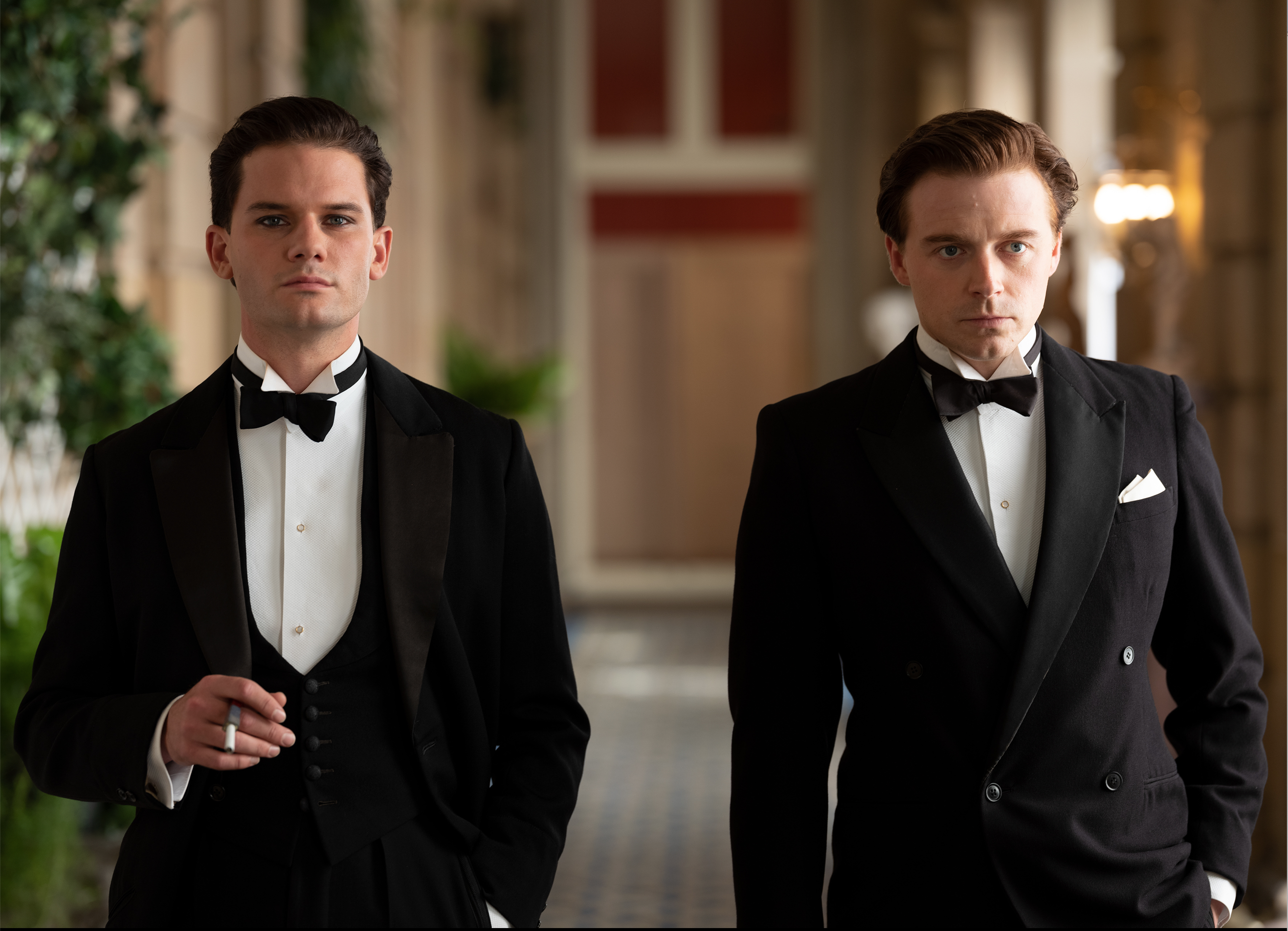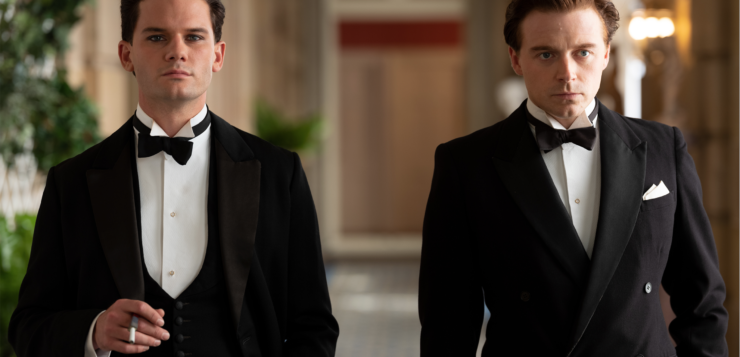THE NAME Siegfried Sassoon may be known to those who follow English poetry or have an interest in the Great War, or who wish to be versed in LGBT culture, but probably not to many others. A new biopic titled Benediction, by gay English director Terence Davies, is the story of Sassoon told as a chronological inquest into the psyche of one of the great war poets of his era.
Although Sassoon was a decorated hero on the battlefield, when given time for convalescent leave, he used it to excoriate the conduct of the war in a letter to his commanding officer, and he indicated his intention to withdraw from further military duty. He might have been court-martialed and shot, but cooler heads prevailed—despite the confrontational stance taken by Sassoon, played with striking command by Jack Lowden, when he was formally questioned by three military superiors. In the end, Sassoon was sent to a war hospital in Scotland and treated for “shell shock.” His case had by then stirred up controversy. The higher-ups decided on this less provocative solution to a problem whose public relations implications were obvious. So he was given the so-called “talking cure”—regular visits with W.H.R. Rivers, a sympathetic doctor–therapist who, like Sassoon, was discreetly homosexual. Their conversation on this point is portrayed as a subtle exchange between two proper gentlemen even as the pair reveal to one another the most consequential matter of their inner lives. In the film, Ben Daniels as the elegant, older Rivers offers himself to Sassoon as an example of knowing but not tortured stoicism. Daniels gives a wonderfully sly if brief performance.
Terence Davies, who also wrote the screenplay, limits the scope of his film to Sassoon’s life as a poet famous enough after the war to enter the higher echelons of British society. He’s also attractive enough to succumb to repeated seductions by the period’s outrageous male Bright Young Things. These were youth of both sexes whose rebellious style, speech, drug use, and amorous escapades made them equally celebrated and deplored as they partied their way into newspaper gossip. But Sassoon remains conflicted and seeks spiritual redemption in the conformity of a marriage to an amiable young woman aware of his other sexual interests. Later, the aging poet will convert to Catholicism. Along the way, especially in the film’s first half, director Davies deploys voiceovers of successive war poems read by Jack Lowden, who also brings a beautiful grace and charm to his portrayal of the young Sassoon. Often accompanying this rich lyrical language is haunting black-and-white silent newsreel footage showing the grim carnage of trench warfare or the spirited procession of young men marching in formation. These conjunctions convey a tone at once elegiac and bracing as young soldiers march with determination or slog through the mud while Lowden’s voice intones such poems as Sassoon’s “Attack” and Wilfred Owen’s “Anthem for Doomed Youth.”

When the story moves from the sanitarium to the aftermath of war, Sassoon’s caution in erotic and emotional matters gives way to a stage of sexual discovery among those spoiled youths of society drawing rooms. Here the elegiac quality of the film turns brittle, as Sassoon is taken up by Ivor Novello (played by Jeremy Irvine), a matinee idol, composer of witty stage music, and silent screen star, with whom he has a brief affair.
Among the members of this group of superior queer narcissists we have Glen Byam Shaw (played by Tom Blyth), who was a favorite of Novello’s before Sassoon came on the scene, and Stephen Tennant (Calam Lynch), the supreme model of a supercilious social climber who takes up with Sassoon after Novello has dropped him. This daisy chain of “pretty boys,” as even Sassoon’s mother characterized them, leaves us wondering just how injudicious Sassoon was in his choice of lovers. What fleetingly rescues this stretch of the film is the occasional appearance of Robbie Ross (played with tender understatement by Simon Russell Beale), by now an elder gay statesman who late in the previous century had bravely defended his friend Oscar Wilde from scurrilous attacks.
We know from an early scene in the film—which pitches forward to an aging Sassoon sitting in morose silence in an empty church with his adult son George sitting nearby—that the war encouraged a spiritual crisis of faith in Sassoon, who is about to convert to Catholicism. The film has several similar “flash forwards,” with an austere and angry Peter Capaldi playing the elderly, moody, and intemperate Sassoon, who has married well if not wisely. Without the therapist W.H.R. Rivers to guide us through these postwar scenes, we deduce that Sassoon’s experience of the Great War, the loss of his younger brother Homa and of his friend, the poet Wilfred Owen, shook Sassoon’s psyche to its foundations. These developments, and his companionable marriage to Hester Gatty—which had grown desiccated and unsatisfying to both partners—had left Sassoon emotionally unanchored and quick-tempered, angry at the world and at himself.
Although the film ends on a note of possible familial harmony for Sassoon, there remains a dreadful sense that a life of great promise has curdled into one of disappointment and sourness, the price that Sassoon paid for leading a “shadow life” in England’s moral straitjacket in the first half of the 20th century. If not a rousing paean to the doughboys of the Somme or the gay poets who loved them, Benediction has a steady, stately tempo, several sharply etched performances, and a visual richness to counter the mournful nostalgia it imparts.
Allen Ellenzweig, a longtime contributor to these pages, is the author of the recently published book George Platt Lynes: The Daring Eye (Oxford University Press).







